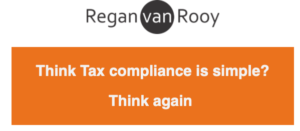This article was published by South African Revenue Service and the full article is available at: https://www.sars.gov.za/individuals/what-if-i-do-not-agree/being-audited-or-selected-for-verification/
What is verification?
Verification is a face-value verification of the information declared by the taxpayer on the declaration or in a return. This involves a comparison of this information against third party data gathered by SARS from various sources, the financial and accounting records and/or other supporting documents provided by taxpayers to ensure that the declaration/return is a fair and accurate representation of the taxpayer’s tax position. Once you have submitted your declaration/return, your declaration/return could be selected for verification.
Who can be selected for verification?
Any taxpayer can be selected by SARS for verification for the purpose of proper administration of tax, including on a risk basis.
What steps should I take if I am selected for verification?
If you are selected for verification, you will be notified by SARS through an official letter. This letter will indicate the due date / time frames within which you must submit either:
- The requested relevant material (supporting documents) / other information/ forms; or
- A Request For Correction (RFC). A RFC must be submitted if you wish to change your original declaration.
The required relevant material will differ depending on the tax type. If you are an eFiler, you can use this channel to submit your relevant material. Scan your relevant material and save it on your computer/desktop. Log onto eFiling, upload your relevant material and submit them on eFiling. Please remember to click ‘submit’ in order to send the relevant material to SARS. Alternatively, you can submit your relevant material via the SARS Online Query System on the SARS website. If unsure, you may book an appointment at a SARS branch and submit your relevant material there.
Top Tips:
- The relevant material needed will be listed in the verification letter sent by SARS.
- The link to upload relevant material on eFiling is only available upon receipt of the letter requesting the relevant material (refer to the relevant guides on eFiling):
- Upload all the relevant material as requested in the above-mentioned letter.
- Once all the relevant material has been uploaded, click the ‘submit’ button to submit it to SARS. PLEASE NOTE that once the relevant material is submitted, the link will close and you will not be able to upload any further relevant material. It is therefore important that you click submit ONLY when all documents have been uploaded.
- Make sure the original letter sent by SARS is included when you submit relevant material on the SARS Online Query system or via the branch, as it contains a unique bar-coded reference that links the uploaded relevant material to your tax records.
- Ensure that the following standards are adhered to when relevant material are uploaded:
- The file type may be .pdf, .doc, .docx, .xls, .xlsx, .jpg and .gif to enable SARS to view the documents.
- The maximum allowable size per document is 5MB and a maximum of 20 documents may be uploaded.
What can I expect during the verification?
If you are subject to a verification, we will endeavour to:
- Notify you that the return or declaration is subject to verification.
- Conclude verification within 21 business days from the date all required relevant material is received, if your return is for the current filing period.
A letter requesting further relevant material could be issued if the relevant material initially supplied was not sufficient to finalise the verification.
If you have a refund due, the refund will not be paid out while the verification is in progress.
SARS must ensure that the tax position declared is in line with the relevant tax legislation. If it is found to be incorrect, an assessment will be raised.
The levying of understatement penalties must be considered where an understatement occurred. The percentage of a penalty varies from 0% to 200%. Harsher penalties are reserved for culpable repeat offenders or obstructive taxpayers.
What if I do not respond to the request for relevant material?
If you do not respond by submitting a RFC or providing the relevant material, a second letter will be sent to you. If you still do not respond within the specified timelines, a revised assessment will be issued based on the data at SARS’ disposal.
Top Tip: It is better to respond to all queries straight away. Taxpayers found to be obstructive could face higher penalties should it be found that an understatement occurred.
What can I expect when the verification is finalised?
Once the verification is finalised, you can expect one of the following:
- Where no further risk(s) were identified and no finding was made, a Notification of the finalisation of the verification via eFiling, email or post;
- Where no further risk(s) were identified and a finding was made, a Notice of Assessment of the revised assessment via eFiling, email or post;
- Where further risk(s) were identified, a Referral for Audit Letter via eFiling, email or post. Your return/declaration is then referred for an audit. If you have a refund due, the refund will only be paid once the audit is complete and the specific refund validations were passed.
A SARS assessment normally becomes final within three years from the date of assessment (non-self-assessment taxes like Income Tax) or five years from date of assessment (self-assessment taxes like Value-Added Tax). However, SARS does have the right to open an already prescribed assessment where fraud, misrepresentation or non-disclosure of material facts is identified. Furthermore, SARS has the right to extend the prescription date in certain instances.
If you are aggrieved by the assessment, you can dispute it. Refer to Objections for more guidance on that process.
What is an audit?
It is an examination of the financial and accounting records and/or the supporting documents of the taxpayer to determine whether the taxpayer has correctly declared his/her tax position to SARS. Where the taxpayer has not made a declaration or filed a return, it is an investigation regarding whether the taxpayer’s actions complies with the provisions of the relevant tax legislation.
Who can be selected for audit?
Any taxpayer can be selected by SARS for an audit for the purpose of proper administration of tax, including on a risk basis. Taxpayers may also be selected for audit on a random or risk basis.
What should I expect if I am referred for an audit?
If you were subject to a verification and the verification process has been completed, your tax affairs could still be referred for audit as part of the SARS compliance process. This does not mean that an audit has commenced. You must still await a formal Notification of Audit letter (where the audit has been allocated to a specific auditor).
What steps should I take if I am selected for an audit?
An audit is only deemed to commence once a formal Notification of Audit by a specific auditor is issued to the taxpayer. If relevant material (supporting documents) is requested in the Notification, you should submit the relevant material to SARS within the specific timelines stipulated in the Notification. Alternatively, arrangements will be made with you to conduct a field audit at your convenience. Photocopy costs can be recovered from SARS where a field audit is conducted, provided that certain requirements are met. The required relevant material will differ depending on the tax type and scope of the audit. Please note that SARS can also obtain relevant material from any third party. The relevant material is preferred in electronic format and arrangements can be made for an Electronic Forensic Specialist to download these from your computer systems. If you are an eFiler, you can scan your relevant material and save them on your desktop. Log onto efiling, upload your relevant material and submit them via eFiling. Please remember to click ‘submit’ in order to send the relevant material to SARS. Alternatively you can make arrangements with the specific auditor (SARS official) indicated on the letter to collect the requested relevant material or to have it delivered.
Top Tips:
- Make contact with the specific auditor (SARS official) mentioned in the letter.
- The link to upload relevant material on eFiling is only available upon receipt of the letter requesting the relevant material (refer to the relevant guides on eFiling):
- Upload all the relevant material as requested in the above-mentioned letter.
- Once all the relevant material has been uploaded, click the ‘submit’ button to submit it to SARS. PLEASE NOTE that once the relevant material is submitted, the link will close and you will not be able to upload any further relevant material.
- Make sure the original letter sent by SARS is included when you submit relevant material on eFiling or via the branch, as it contains a unique bar-coded reference that links the uploaded relevant material to your tax records.
- Ensure that the following standards are adhered to when supporting relevant material are uploaded:
- The file type may be .pdf, .doc, .docx, .xls, .xlsx, .jpg and .gif to enable SARS to view the documents.
- The maximum allowable size per document is 5MB and a maximum of 20 documents may be uploaded.
Should you require any further assistance, contact the specific auditor (SARS Official) mentioned in the Notification of Audit.
What can I expect during the audit?
You can expect the following:
- The Notification of Audit will indicate the initial scope of the audit;
- A Notification where additional material is required;
- The SARS Auditor will produce an Authorisation Letter where a field audit is conducted;
- All Covid-19 protocols will be adhered to at all times during the field audit.
- Progress reports of the stage of the audit will be issued at intervals of 90 calendar days from the date of the Notification of Audit;
- If you have a refund due, the refund will not be paid out during the execution of the audit.
The progress reports may not apply if SARS is of the view that it will impede or jeopardise the outcome of the audit.
By its nature, an audit is a more intrusive process than a verification and the scope could be extensive. The audit could be completed within anything from 30 business days to 12 months, or even longer, depending on the complexity of the matter, the volumes of transactions involved and the level of co-operation by the taxpayer.
SARS can request additional or further relevant material throughout the audit. If you do not respond by submitting the relevant material when requested, SARS will raise an assessment based on information readily available or obtained from a third party.
SARS may make an original, additional, reduced or jeopardy assessment based on an estimate.
Should you require any further assistance, contact the specific auditor (SARS official) mentioned in the Notification of audit letter.
Top Tip: It is better to respond to all queries straight away. Taxpayers whom are obstructive could face higher penalties should it be found that an understatement occurred.
What can I expect when the audit is finalised?
At the conclusion of the audit, we will endeavour to:
- Where potential adjustments were identified, issue an Audit Findings Letter indicating the grounds for the proposed assessments within 21 business days. SARS will provide the taxpayer at least 21 business days to respond to the Audit Findings Letter.
- Conclude an audit within 90 business days from the date all required relevant material is received.
- Provide a Finalisation of Audit Letter detailing the grounds for the assessment (including the amounts) if it is found that your tax position is incorrect or provide a Finalisation of Audit Letter to conclude the audit where no findings were made.
SARS must ensure that the tax position declared is in line with the relevant tax legislation. If it is found to be incorrect, an assessment will be raised.
You can expect an Audit Findings Letter indicating the findings of the audit once completed, unless you waive the right to receive such letter. You need to respond to this Audit Findings Letter within 21 business days indicating your agreement or disagreement with the proposed adjustments, imposition of understatement penalties and/or interest. You must also provide evidence to support your view where you disagree and provide reason(s) and evidence as to why understatement penalties and/or interest should not be imposed.
Kindly note that the Audit Findings Letter does not apply if SARS is of the view that it will impede or jeopardise the outcome of the audit.
The response to the Audit Findings Letter will be considered in determining whether the proposed audit findings should remain or not.
If SARS is still of the view that a revised assessment must be done; or where the taxpayer chose not to respond to the Audit Findings Letter, the imposition of understatement penalties must be considered. The levying of understatement penalties must be considered where an understatement occurred. The percentage of a penalty varies from 0% to 200%. Harsher penalties are reserved for culpable repeat offenders or obstructive taxpayers. Thereafter a revised assessment will be raised.
A Notice of Assessment and a Finalisation of Audit Letter detailing the grounds of the assessment (including amounts) will be issued via eFiling, email or post. Any refund due to you will be paid out after the completion of the audit, subject to specific refund validations being passed. An assessment may also result in tax owing to SARS. The payment due date of such debt will be stipulated in the Notice of Assessment.
A SARS assessment normally becomes final within 3 years from the date of assessment (non-self-assessment taxes like Income Tax) or five years from date of assessment (self-assessment taxes like Value Added Tax). However, SARS does have the right to open an already prescribed assessment where fraud, misrepresentation or non-disclosure of material facts is identified. Furthermore, SARS has the right to extend the prescription date in certain instances.
If no finding was made as result of the audit or SARS conceded based on the response by the taxpayer to the Audit Findings Letter, a Finalisation of Audit Letter will be issued via eFiling, email or post.
If you are aggrieved by the assessment, you can dispute it. Refer to Objections for more guidance on that process.
If you are aggrieved by the original assessment based on an estimate, you can submit the complete and correct return within 40 business days from the date of assessment.
Should you require any assistance after finalisation of the audit, contact the SARS Contact Centre.
Voluntary Disclosure Programme
At all times, during verification or audit, the taxpayer can approach the Voluntary Disclosure Unit to make a voluntary disclosure. Refer to the Voluntary Disclosure programme for more guidance on that process.






